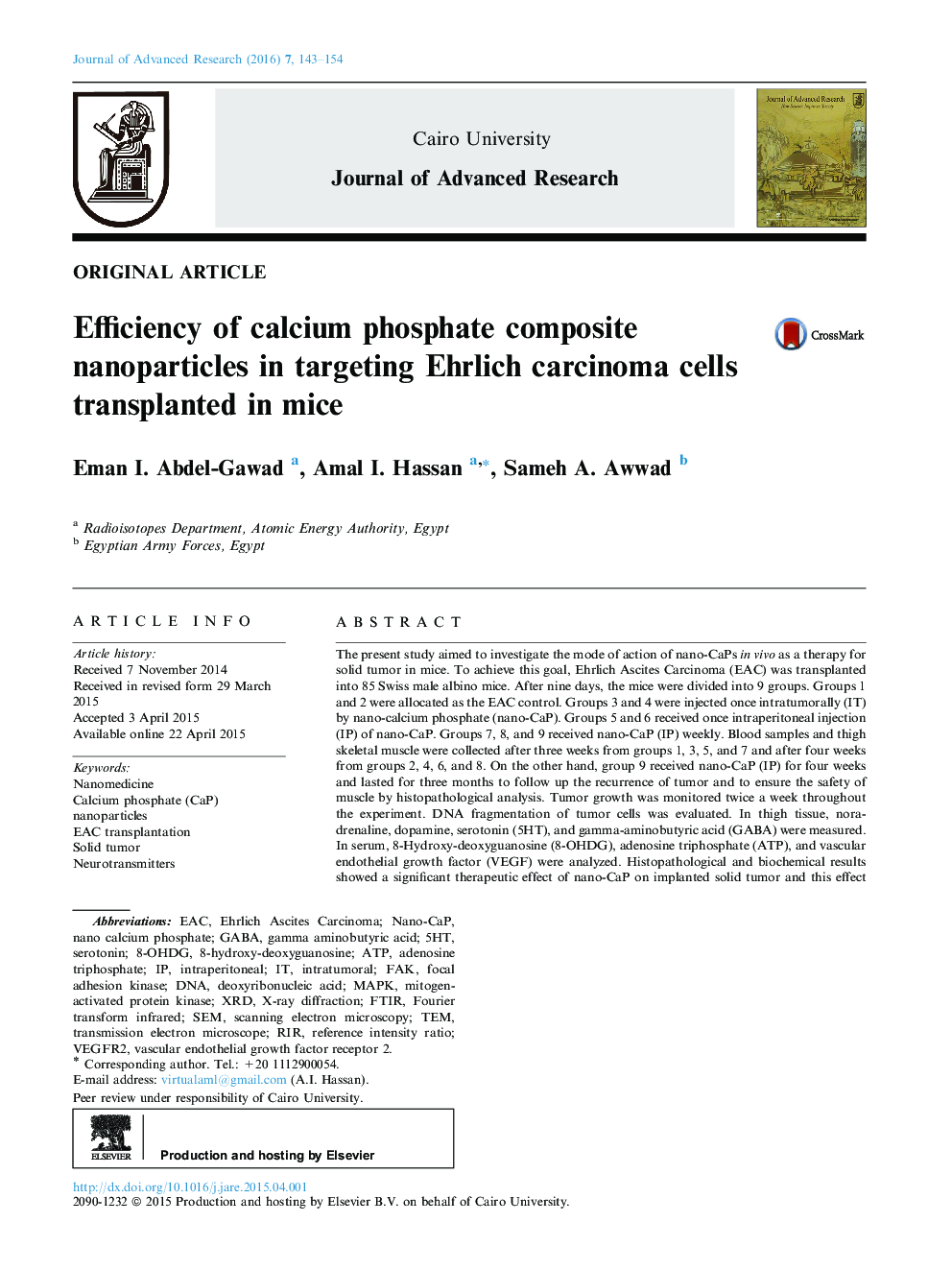| Article ID | Journal | Published Year | Pages | File Type |
|---|---|---|---|---|
| 826123 | Journal of Advanced Research | 2016 | 12 Pages |
The present study aimed to investigate the mode of action of nano-CaPs in vivo as a therapy for solid tumor in mice. To achieve this goal, Ehrlich Ascites Carcinoma (EAC) was transplanted into 85 Swiss male albino mice. After nine days, the mice were divided into 9 groups. Groups 1 and 2 were allocated as the EAC control. Groups 3 and 4 were injected once intratumorally (IT) by nano-calcium phosphate (nano-CaP). Groups 5 and 6 received once intraperitoneal injection (IP) of nano-CaP. Groups 7, 8, and 9 received nano-CaP (IP) weekly. Blood samples and thigh skeletal muscle were collected after three weeks from groups 1, 3, 5, and 7 and after four weeks from groups 2, 4, 6, and 8. On the other hand, group 9 received nano-CaP (IP) for four weeks and lasted for three months to follow up the recurrence of tumor and to ensure the safety of muscle by histopathological analysis. Tumor growth was monitored twice a week throughout the experiment. DNA fragmentation of tumor cells was evaluated. In thigh tissue, noradrenaline, dopamine, serotonin (5HT), and gamma-aminobutyric acid (GABA) were measured. In serum, 8-Hydroxy-deoxyguanosine (8-OHDG), adenosine triphosphate (ATP), and vascular endothelial growth factor (VEGF) were analyzed. Histopathological and biochemical results showed a significant therapeutic effect of nano-CaP on implanted solid tumor and this effect was more pronounced in the animals treated IP for four weeks. This improvement was evident from the repair of fragmented DNA, the significant decrease of caspase-3, 8-OHDG, myosin, and VEGF, and the significant increase of neurotransmitters (NA, DA, 5HT, and GABA). Additionally, histopathological examination showed complete recovery of cancer cells in the thigh muscle after three months.
